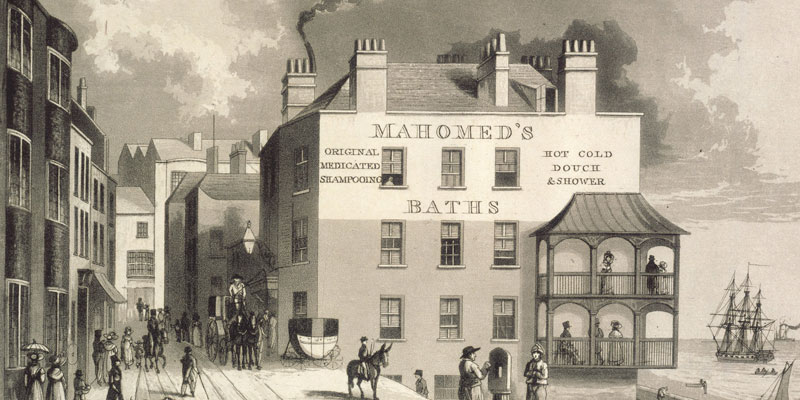Writing by Muslims in South Asia and Britain
-
Case study
- Culture and Communication
Dr Claire Chambers is a leading voice in the field of Muslim literary studies.

The issue
Muslim studies has typically been dominated by sociology and related disciplines, and rarely viewed through the critical lens of the humanities. In particular, the field of Muslim literary studies has long been under-researched.
Within academia, Muslim literature is often assumed to be a contemporary, post-9/11 phenomenon. But this neglects the exciting body of literature by authors of Muslim heritage writing back to Islamophobic stereotypes. This work requires contextualising and framing.
The research
Dr Claire Chambers' research includes a series of works which trace literary representations of Muslims in Britain and South Asia.
Her monograph Britain Through Muslim Eyes: Literary Representations, 1780−1988 galvanised discussions about the place of Islam in contemporary British and South Asian writing. This work shone a spotlight on Muslim perspectives on Britain up to the publication of Salman Rushdie's The Satanic Verses and the controversies that ensued.
Dr Chambers’ co-edited collection Imagining Muslims in South Asia and the Diaspora looks at literary, cinematic and media representations of the disputed category of the ‘South Asian Muslim’, in the wake of major political upheavals since the Partition of India in 1947, the Indo-Pakistan war in 1971, and 9/11. These works have attracted comment, interest and acclaim both in the UK and Pakistan.
In the selection of essays Rivers of Ink, Dr Chambers makes the case for drawing the writing of Pakistan and its diaspora into the mainstream English canon. In his ‘tribute’ to the collection, Akbar Ahmed, former High Commissioner to the UK, wrote: "Chambers reflects the spirit of the British scholar-adventurer in the last century that drove the likes of Gertrude Bell and T. E. Lawrence. But that is where the comparison ends: Chambers wishes to reach out and embrace the world."
The outcome
Dr Chambers is part of an important global network linking the UK with South Asian cultural thought. Her research has made a significant contribution to the increased national and international profile of British Muslim and South Asian literature and culture.
Through appearances at literature festivals, Dr Chambers has established her profile as a writer who links the local with the international. She has influenced and championed the writing and creative visions of a hub of Muslim writers in the UK and beyond.
Dr Chambers’ research on postcolonial Shakespeare has led to extensive work in educational settings within the UK and South Asia.
Leeds Meets Shakespeare - a project led by Dr Chambers in partnership with Globe Education, Leeds Playhouse, Artforms and British Asian cultural organisation Tribe Arts - is an ongoing initiative to improve attainment and enrich the curriculum in Leeds schools with a high proportion of Pakistani- and Bangladeshi-heritage pupils.
A review of the project from Leeds.gov.uk praises its "impact on pupils’ confidence and engagement particularly for lower ability and less confident pupils".

Claire Chambers
Dr Chambers is an expert in contemporary South Asian literature written in English and literary representations of British Muslims.
